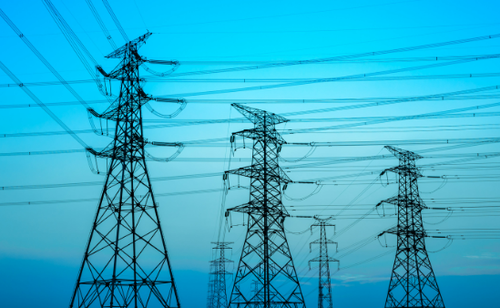Agenda 30: Great Reset: "The Train Crash Scenario": California EV Mandates Will Further Stress An Already Exhausted Electric Grid

So apparently the idea of EVs providing a problem-free and pollution-free utopia where everybody lives in total harmony and there are no problems isn't quite the reality of the situation... duh!
So apparently the idea of EVs providing a problem-free and pollution-free utopia where everybody lives in total harmony and there are no problems isn't quite the reality of the situation. The reality in California, as the Wall Street Journal wrote about this week, is actually that EV charging is putting stress onto an aging grid and forcing the state to think about ways to generate more power. The state's plan to end gas powered vehicles by 2035 means that power needs in the state are going to increase. Meanwhile, as California's grid has already been stressed this year, the state has been asking citizens to be mindful of when they charge their EVs - and even when they use their major appliances. Which, of course, begs the question: how the hell is the state going to go all electric within 12 years? First, it'll need buy-in from its citizens over charging habits. Dan Bowermaster, senior program manager for electric transportation at EPRI, a nonprofit research group, told WSJ: “Are people going to top off every night? Are people going to wait every few days and then charge up all at once? There are a lot of questions about customer behavior.” Utilities and auto makers are already trying to offer incentives for owners to charge at certain times and using favorable methods, the report says. The state is expected to have 5.4 million passenger EVs and 193,000 medium and heavy duty EVs by 2030, the state’s energy commission estimates. This charging will amount to 5% of the electric load at peak hours, compared to about 1% now. Despite this, Liane Randolph, chair of the California Air Resources Board, is optimistic. She told the WSJ: “The reality is the grid is only stressed in a limited period, a few hours in the early evening on certain types of days. Most of the time it’s fine.” Oh, okay. Problem solved. Well not quite. A study out of Stanford released last week showed that the grid could face problems late at night when cars are charged at home. Siobhan Powell, the study’s lead author, commented: “If everyone were doing that, it would cause really big problems.” At home charging draws about the same power as using 2.5 air conditioners, the report says. John Moura, director of reliability assessment and performance analysis at the North American Electric Reliability Corp., added: “There’s some energy challenges in how we’re bringing on new resources to meet this new growth of electricity demand.” “The disaster kind of comes from the rally cries from the public that utilities aren’t connecting their EVs fast enough. And now that bumps up against EV mandates. That’s the train-crash scenario.” 
This Forum message belongs to a larger discussion thread. See the complete thread below. You can reply to this message!
-
Agenda 30: Great Reset: "The Train Crash Scenario"...
 turiya
26 m
185
turiya
26 m
185
This is the position of the above message within the thread.
CureZone Newsletter is distributed in partnership with https://www.netatlantic.com
Contact Us - Advertise - Stats
0.105 sec, (3)

